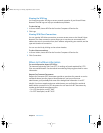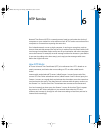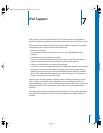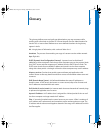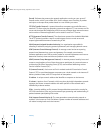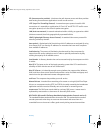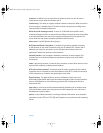
7
83
7 IPv6 Support
IPv6 is short for “Internet Protocol Version 6."IPv6 is the Internet’s next-generation
protocol designed to replace the current Internet Protocol, IP Version 4 (IPv4, or just IP).
The current Internet Protocol is beginning to have problems coping with the growth
and popularity of the Internet. IPv4’s main problems are:
• Limited IP addressing.
IPv4 addresses are 32 bits, meaning there can be only 4,300,000,000 network
addresses.
• Increased routing and configuration burden.
The amount of network overhead, memory, and time to route IPv4 information is
rapidly increasing with each new computer connected to the Internet.
• End-to-end communication is routinely circumvented.
This point is actually an outgrowth from the IPv4 addressing problem. As the number
of computers increases and the address shortages become more acute, another
addressing and routing service has been developed, Network Address Translation
(NAT), which mediates and separates the two network end points. This frustrates a
number of network services and is limiting.
IPv6 fixes some of these problems and helps others. It adds improvements in areas
such as routing and network auto-configuration. It has increased the number of
network addresses to over 3 x10
38
, and eliminates the need for NAT. IPv6 is expected to
gradually replace IPv4 over a number of years, with the two coexisting during the
transition.
This chapter lists the IPv6 enabled services used by Mac OS X Server, gives guidelines
for using the IPv6 addresses in those services, and explains IPv6 address types and
notation.
LL2351.Book Page 83 Monday, September 8, 2003 2:47 PM





